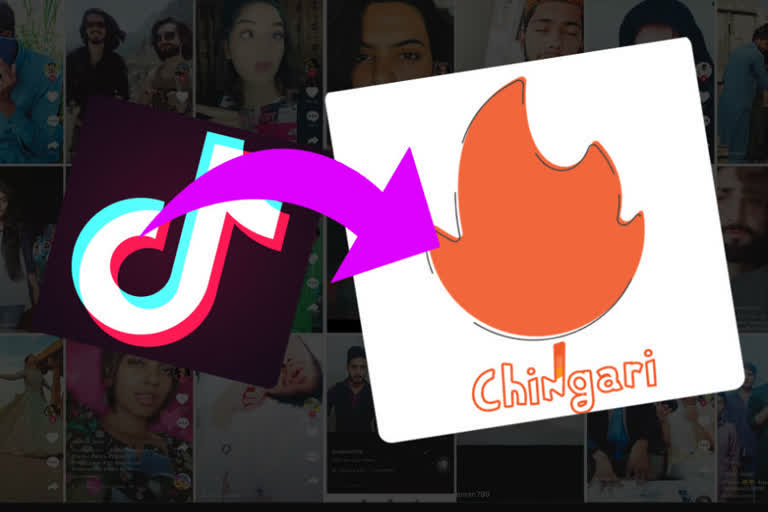Hyderabad: Earlier this week, taking note of the wave of anti-China sentiment sweeping across the country, the Indian government banned 59 Chinese apps in an unexpected move, sending Indian tech companies and start-ups into a tizzy, but for a good reason.
The ban on immensely popular social apps like TikTok, WeChat, Helo, among others, meant that consumer attention could now dramatically shift towards local Indian apps playing in the same arena that till now were the ‘non-preferred’ substitute. And that’s exactly what happened.
As Internet service providers blocked video-sharing platform TikTok, which has a user base of an estimated 120 million in India, similar homegrown apps like Chingari and Mitron started reporting massive increase in downloads just few hours later.
" class="align-text-top noRightClick twitterSection" data="Sumit Ghosh, co-founder and chief product officer, Chingari app, wrote on Twitter on 29 June (the same day the ban on Chinese apps was imposed): “100,000 downloads per hour, guys please be patient! we are working on the servers and getting things up and running asap!”
100,000 downloads per hour, guys please be patient! we are working on the servers and getting things up and running asap! pic.twitter.com/h3lGCbe4yl
— Sumit Ghosh (@sumitgh85) June 29, 2020
">100,000 downloads per hour, guys please be patient! we are working on the servers and getting things up and running asap! pic.twitter.com/h3lGCbe4yl
— Sumit Ghosh (@sumitgh85) June 29, 2020
100,000 downloads per hour, guys please be patient! we are working on the servers and getting things up and running asap! pic.twitter.com/h3lGCbe4yl
— Sumit Ghosh (@sumitgh85) June 29, 2020



